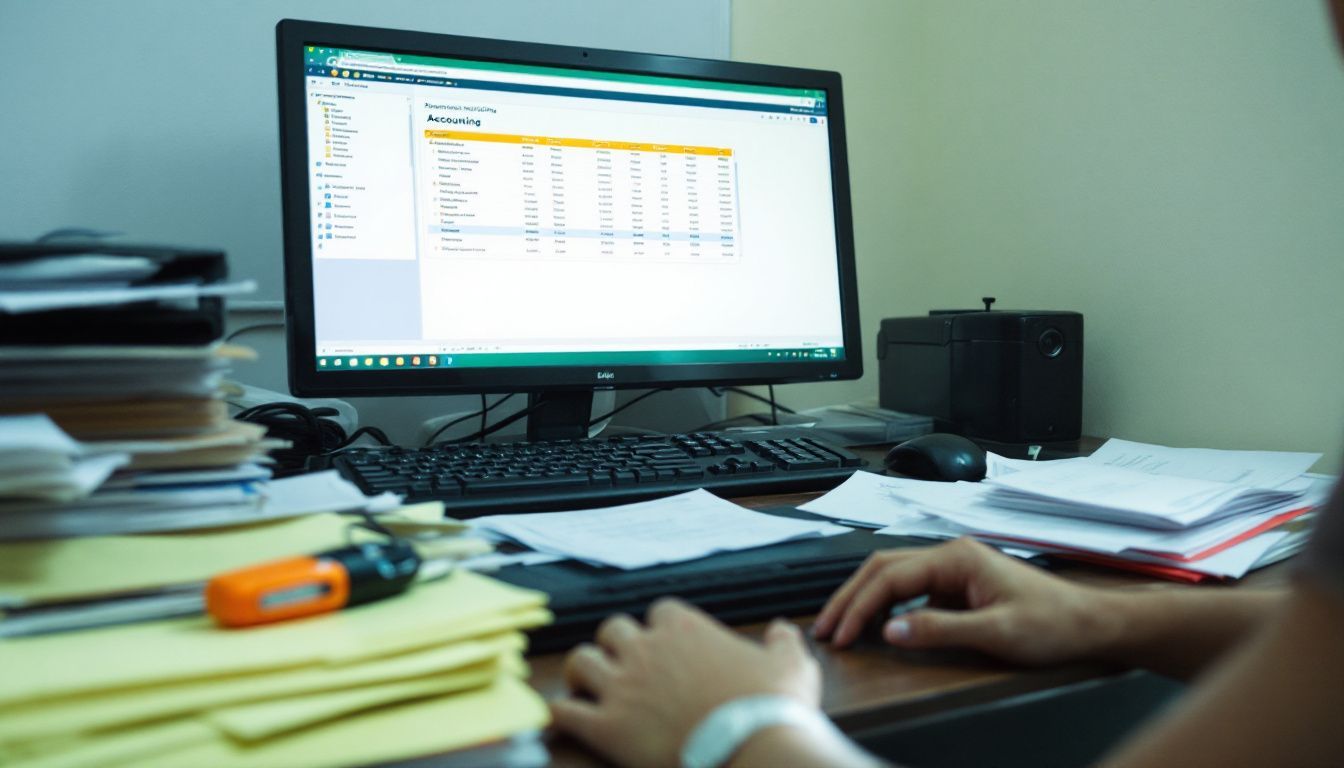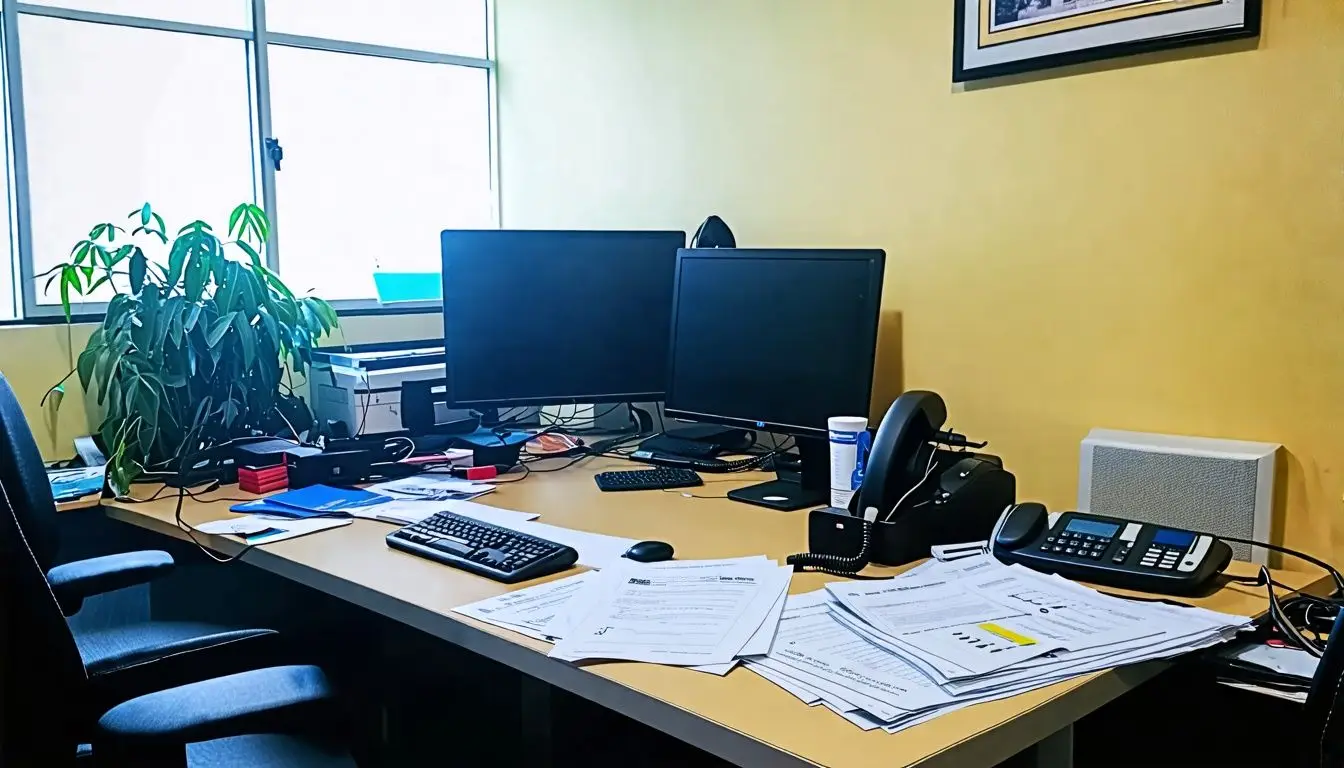Business Permits For Freelancers In The Philippines and this article will guide you through getting the right permits and staying legal. Keep reading to learn how!
Key Takeaways
- Registering as a freelancer offers benefits like attracting new clients, potential tax savings, and making your business credible.
- To register, freelancers need documents such as a valid ID, Barangay Clearance, proof of address, BIR Form 1901 for tax registration, payment receipts for registration fees, books of accounts for transactions, and sample contracts with clients.
- After registering at BIR and getting necessary permits from local government units (LGU), freelancers should ensure they have all proper licenses including professional or occupational licenses if their service requires it.
- Freelancers must pay taxes just like any other worker in the Philippines and file them correctly to avoid penalties.
Importance of Business Permits For Freelancers In The Philippines
Getting your freelance business registered is key. It makes everything you do official and opens up new doors.
Advantages of Legalizing Your Freelance Operations
Registering your freelance business opens doors to new clients and opportunities. It’s a sign that you’re serious about your work. This step shows you’re accountable and trustworthy.
With legal status, more people want to work with you because they feel secure. This means bigger projects and possibly better pay.
Legalizing also has perks during tax time. You might pay lower taxes than before. Plus, if your earnings go past a certain point, you’ll need to handle VAT charges correctly — being registered keeps everything smooth here.
Making it official as a freelancer brings credibility, attracts more clients, and can even lead to tax savings.
Key Tax Responsibilities for Freelancers
Freelancers in the Philippines have to pay taxes, just like everyone else. The law says they must register as self-employed. This way, they can legally start working. They face a 12% tax on what they earn.
So, knowing how much you need to hand over to the government is key.
Paying taxes is not optional—even if freelancers are not making money at times. The government takes a piece based on their total income before expenses. Keeping track of these payments helps freelancers avoid trouble and stay focused on growing their business.
Steps for Registering Your Freelance Business at Local Goverment Business Permit Licensing
Getting your freelance business officially recognized starts at the local government office. Here, you’ll file paperwork and show key documents to make your work legal.
Necessary Documents for Freelancers
Good news for freelancers in the Philippines! Registering your business just got easier, but you’ll need a few important documents to start. Here’s what you should gather:
- Valid ID – Make sure it’s government-issued and up-to-date. Your current address must match the one on your ID.
- Barangay Clearance – This shows you’re cleared to do business in your local area.
- Proof of Address – A utility bill or lease contract works perfectly to prove where you live and work.
- BIR Form 1901 – You’ll fill this out to register as a self-employed individual with the Bureau of Internal Revenue.
- Receipts for Registration Fee Payments – Keep these as proof that you’ve paid all necessary fees.
- Books of Accounts – These can be ledgers or journals where you’ll record all your transactions.
- Contract Samples – Having copies of agreements or contracts you use with clients can help speed up the process.
This list will get you started on legalizing your freelance business, ensuring compliance with Philippine laws.
Completing Registration forms for Business Permits For Freelancers In The Philippines
Filling out registration forms is a crucial step for freelancers in the Philippines to make their business official. This process helps you avoid any legal issues and sets the path for your freelance career to grow. Here’s how to tackle the form completion:
- Start with BIR Form 1901, which is necessary for every freelancer registering with the Bureau of Internal Revenue (BIR).
- Make sure you have all required documents ready before filling out the form. These typically include valid IDs, proof of address, and possibly previous tax records if applicable.
- Clearly write down your personal details such as name, address, and contact information to avoid any confusion.
- Indicate your type of business accurately—whether it’s purely freelancing or if it involves selling goods as well.
- Estimate your expected earnings for the year as best as you can; this helps determine your tax bracket.
- Choose your payment method for taxes carefully; decide whether a monthly or quarterly setup works better for you.
- Double-check all entered information on the form for accuracy before submission.
- Pay the required registration fee after submitting BIR Form 1901 at your designated Revenue District Office.
Next up: what to do once you’ve completed registering.
Actions Post-Registration
After you finish registering, your work isn’t over. You now need to get the right business licenses and know the local rules for freelancers.
Acquiring Essential Business Licenses
Getting the right business licenses is a big step for freelancers in the Philippines. It shows you’re serious and ready to work legally. Here’s what you need to do:
- Start with registering your business name at the Department of Trade and Industry (DTI). This makes sure no one else can use your business name.
- Next, head to the Bureau of Internal Revenue (BIR) to get your Tax Identification Number (TIN). You’ll need this for all your tax dealings.
- Apply for a barangay clearance in the area where your freelance business is located. This is proof that your business follows local rules.
- Secure an occupancy permit if you have a separate office space, showing it’s safe and meets building codes.
- Get a fire safety certificate from the Bureau of Fire Protection (BFP). This says your workplace complies with fire safety laws.
- Visit the Local Government Unit (LGU) where your business operates to apply for a business permit. They might require more documents, so check first.
- For specific services, look into professional or occupational licenses that prove you’re qualified in your field.
Each step involves paperwork and fees but following them protects your freelance business and keeps it legal in the Philippines.
Overview of Local Freelance Licenses
After getting your business officially registered, the next step involves understanding local freelance licenses. These are special permits from your city or municipality that let you work legally as a freelancer.
Each area might have different rules and types for these licenses. They prove you’re following local laws and can help avoid legal trouble.
For freelancers in the Philippines, knowing what license you need depends on where you live and your type of work. Some places ask for a simple barangay clearance, while others require more specific paperwork.
Always check with your local government to make sure you get all necessary licenses to keep your freelance business running smoothly.
Navigating Professional and Occupational Licenses for Freelancers
Getting the right professional and occupational licenses is a must for freelancers in the Philippines. First, identify what kind of work you do. This step helps figure out which specific licenses you need.
Some jobs might require special permits, while others don’t. For example, if you offer architectural services or financial advice, expect to apply for licenses that show you’re qualified.
Next up, check with the right government departments. They have all the info on how to get your license. You’ll likely need to fill out forms and maybe pass some tests or show your past work.
Keeping an eye on deadlines is key so you don’t miss any important dates. Also, costs vary depending on what license you’re after, so make sure to plan for these expenses ahead of time.
Frequently Asked Questions
Got questions? We’ve got answers. This section helps you clear up any confusion about business permits for freelancers in the Philippines.
Advantages of Business Registration for Freelancers
Registering your freelance business in the Philippines marks a significant leap. It moves you from being an informal freelancer to a recognized entity with all legal rights and protections.
This step not only gives your work legitimacy but opens doors to working directly with companies, allowing for better contracts and legal safeguards. With registration, freelancers enjoy lower tax rates, which means more of your hard-earned money stays in your pocket.
Plus, the flexibility of choosing when and how much you want to work remains yours, but now with the added bonus of official business recognition.
Business registration bridges freelancers into formal economy—offering security, credibility, and growth.
This shift brings along responsibilities like tax filing but rewards you with professional respect and financial advantages. Now let’s dive into what documents you’ll need to start this journey.
Explaining Local Goverment Business Permit Licenses
Local government business permit licenses are key for freelancers in the Philippines wanting to make their work legal. To get one, you go to the City or Municipal Hall’s Business Permit and Licensing Office.
The process usually finishes in about one to two weeks. This step shows you’re serious about your freelance business, meets local rules, and avoids any trouble with laws.
After getting this license, freelancers can feel safer knowing they follow the right steps for their businesses. They will be ready for taxes and more official parts of running a business.
Next up is how freelancers navigate after registering successfully.
Legal Distinctions Between Freelancers and Sole Proprietors
Freelancers differ from sole proprietors in the Philippines mainly because of the permits they need. Sole proprietors have to get a Mayor’s Permit and Barangay Clearance, but freelancers don’t.
This makes starting as a freelancer simpler.
Sole proprietors face more steps to legalize their business. Freelancers enjoy less paperwork, focusing more on growing their services. Both paths have unique legal requirements, shaping how each operates within the law.
Timeline for Filing Taxes
Moving on from understanding the differences between freelancers and sole proprietors, it’s crucial to get familiar with tax filing deadlines. Freelancers must mark their calendars for specific dates to avoid any hiccups with tax submissions.
The tax season in the Philippines runs from January 1 to April 15 each year, giving freelancers ample time to prepare their documents.
The early bird catches the worm, especially during tax season.
For quarterly Income Tax filings, remember these dates: April 15th, August 15th, and November 15th. It’s not just about meeting these deadlines; it’s also about making sure you’re calculating your taxes based on the last month of every quarter.
File your paperwork by or before April 15th each year to stay compliant and worry-free. This routine ensures that everything related to business licensing stays up-to-date and legal.
Conclusion
Getting your freelance business in the Philippines on the right legal track may sound like a lot of work. But, it sure pays off. With the right permits and registrations, you can avoid headaches later on.
Think less about fines and more about growing your business. Staying updated with tax laws keeps you in check too. So, get started on those forms and embrace your freelance journey fully!
FAQs
1. Do freelancers in the Philippines need business permits?
Yes, even freelancers need to follow the law… They have to get business permits and meet all legal requirements, just like any other business does.
2. How can I register as a freelancer online?
It’s simpler than you might think! Registering online as a freelancer involves filling out forms on government websites. This step makes sure you’re all set with your regulatory obligations.
3. What kind of permits do work-from-home freelancers need?
Whether you’re at home or in an office, the rules are pretty much the same… You’ll need specific permits that show your freelance service is legit and follows Philippine laws.
4. Are there different rules for local and location-independent freelancers?
Not really; both types must comply with legal formalities in the Philippines… Location doesn’t change your compliance issues or licensing needs as a freelancer entrepreneur.
5. What happens if I don’t get my freelance business licensed?
Skipping this step? Not a good idea… Without proper licensing and meeting regulatory requirements, you could face penalties – making it crucial to take care of these legal aspects right away.








